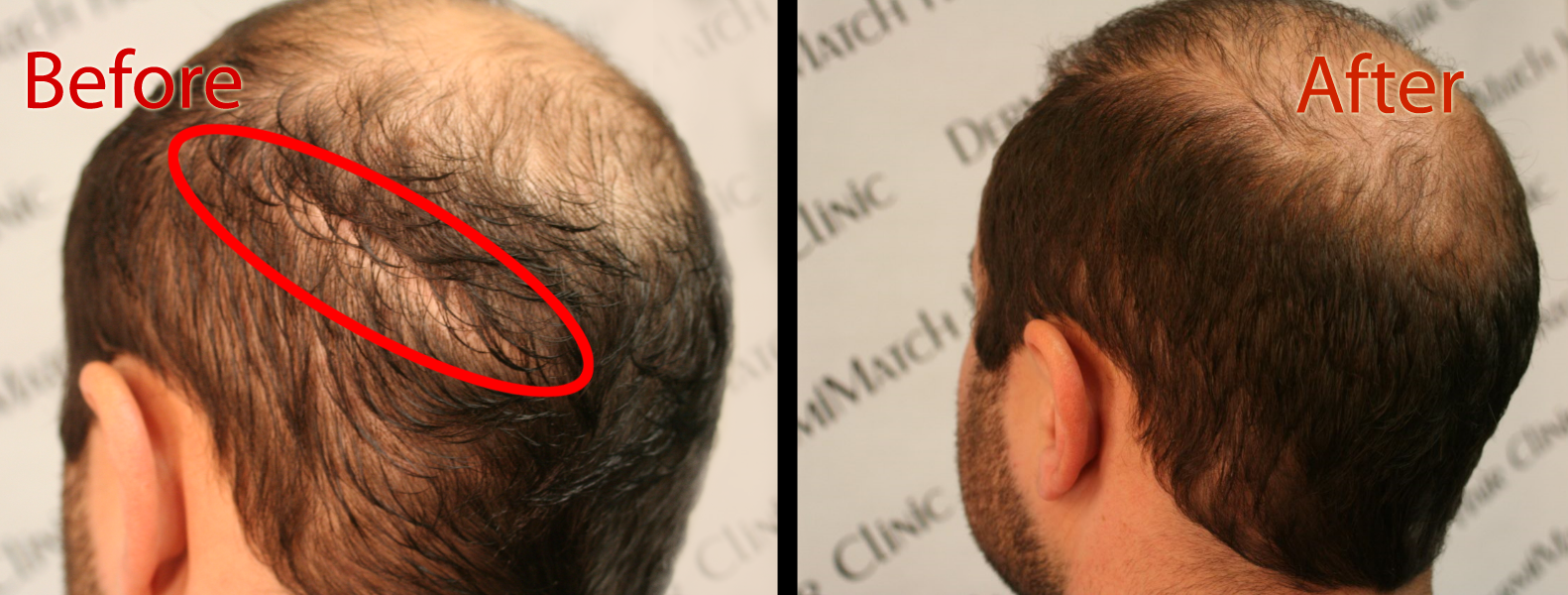Thyroid issues can significantly impact hair growth, leading to various forms of hair loss. Both hypothyroidism and hyperthyroidism can disrupt the normal hair growth cycle, causing thinning, brittleness, and shedding. So the connection between thyroid and hair loss is real. But can anything be done about it?
Thyroid and Hair Loss: The Connection
Thyroid disorders, whether hypothyroidism or hyperthyroidism, can significantly affect hair health. In hypothyroidism, hair follicles may become less active, leading to dry, coarse, and brittle hair, as well as diffuse hair thinning across the scalp.
In contrast, hyperthyroidism may initially accelerate hair growth, but over time, it can cause fragile hair that breaks easily and excessive shedding due to telogen effluvium—a condition where hair follicles prematurely enter the resting phase of the growth cycle.
Thyroid hormones play a crucial role in hair follicle development and maintenance. They regulate various biological processes, including metabolism and cellular differentiation, both of which influence hair growth.
When thyroid hormone levels are out of balance, these processes are disrupted, which can lead to noticeable changes in hair health. People with thyroid dysfunction often have a higher risk of developing autoimmune conditions that can further exacerbate hair loss.
Treatment for Thyroid-Related Hair Shedding
When you recognize the connection between thyroid and hair loss, the primary focus of treatment is to manage the underlying thyroid disorder. For hypothyroidism, hormone replacement therapy is typically prescribed to restore normal thyroid hormone levels, which can help reverse hair loss over a period of time.
For hyperthyroidism, treatment options may include anti-thyroid medications or radioactive iodine therapy to regulate hormone production. In addition to medical treatments, lifestyle modifications such as a balanced diet, rich in essential nutrients, and stress management can further support thyroid health.
However, treatment results take time. But that does not mean hair growth will be restored in all individuals. Some may continue to experience hair thinning or damage, even after successful treatment. When hair shedding is induced by thyroid, no other treatment is effective.
In that case, you may choose scalp micropigmentation as an effective cosmetic solution to address aesthetic concerns related to thyroid-induced hair shedding.
Scalp Micropigmentation for Thyroid Hair Loss
Scalp micropigmentation is a non-invasive procedure that uses a specialized tattooing technique to apply tiny dots on the scalp. This helps create the look of natural hair follicles. The procedure creates the illusion of a fuller, thicker hair on your head. So the procedure is beneficial for people with thinning or patchy hair caused by thyroid-related alopecia.
SMP is suitable for individuals at any stage of hair loss and can complement ongoing medical treatments by enhancing appearance and boosting self-confidence.
One of the key benefits of scalp micropigmentation is that it delivers immediate, transformative results. After a few sessions, clients can leave the clinic with a refreshed and more youthful look. Additionally, SMP requires minimal maintenance compared to other hair restoration methods such as hair transplants or continuous treatments.
If you continue to experience visible hair loss despite treatment, find a scalp expert in Arizona. DermiMatch Clinic is the right place to get SMP help and improve both appearance and confidence. The team at DermiMatch is experienced at scalp micropigmentation and have been helping hair loss clients for decades.

